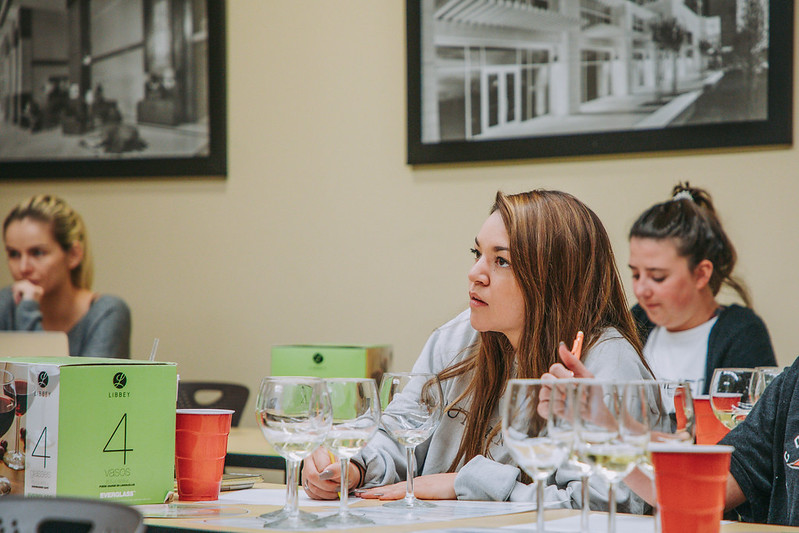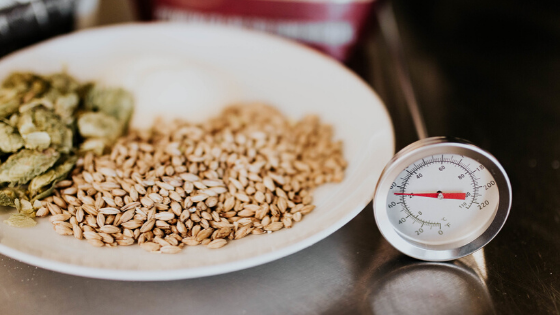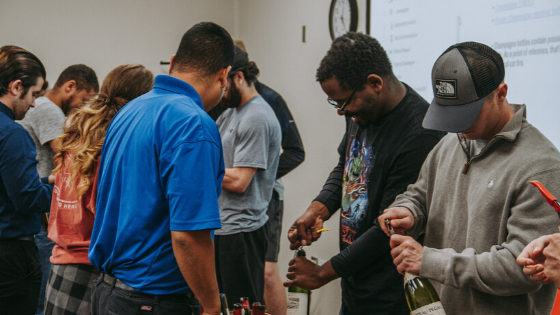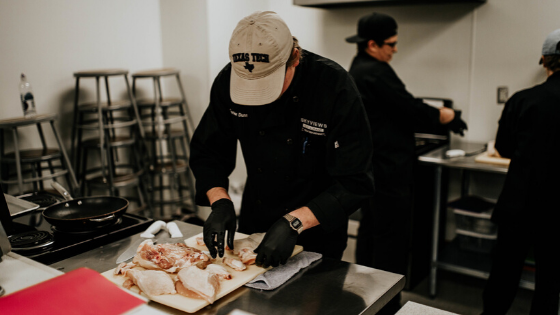
The department offers experiential learning opportunities that provide real-world experiences, preparing students for their future careers.
Students enrolled in the Department of Hospitality and Retail Management (HRM), particularly students pursuing a bachelor's degree in Restaurant, Hotel, and Institutional Management (RHIM), have the opportunity for hands-on learning that goes beyond the classroom and prepares them for their future careers.
The department offers experiential learning opportunities that provide real-world experiences through classes such as RHIM 2312: Introduction to Beer, Wine and Spirits, RHIM 3360: Introduction to Food Production, and RHIM 4350: Wine Tourism.

Taught by Joseph Kleypas, Introduction to Beer, Wine, and Spirits allows students to participate in wine and beer tastings, gain a hands-on interaction with hops and barley — the components of beer — and work in a group to brew their own specialty craft beer at the end of the semester.
Because alcoholic beverages are served in many social settings, such as football games and restaurants, they are interlinked with the hospitality industry. Active education in their use teaches students about their profitability while introducing safe service and the ability to provide premium customer service.
"Alcoholic beverages tend to be the most profitable revenue center in both restaurants and full-service hotels," Joseph said. "Education in alcoholic beverages has two advantages: to promote safe service and the ability to provide the best customer experience through knowledge of beer, wine, and spirits."
Similarly, the Wine Tourism class introduces students to the world of wine while teaching the professional approach to wine tasting, something that Natalia Velikova, Ph.D., says is essential to a career in the wine industry and can only be learned experientially.

"Each human being's sensory abilities are different. Therefore, evaluation of wine can be very subjective," Dr. Velikova said. "However, those students starting a career in the industry or pursuing an interest in wine, need to learn how to taste wine professionally. By using a systematic approach to tasting, students in this class not only develop an understanding of the key factors affecting flavors and aromas of wine but also learn to write comprehensive tasting notes, which allow for a more analytic approach to assessing the wine."
For the Introduction to Food Production students, much of their learning takes place within a kitchen environment or through service projects. Students develop basic cooking skills by learning how to create foods such as meats, sauces, vegetables, and baked goods. This includes taking part in the program's Chef Project – comparable to the TV cooking show, "Chopped" – where students are expected to create a meal from the ingredients they are given.

Outside of honing their culinary skills, students also participate in a service project with the South Plains Food Bank to raise awareness about hunger and its relation to the restaurant industry.
Assistant Professor Michelle Alcorn, Ph.D., explains that this method of hands-on learning introduces students to key aspects of the hospitality industry.
"In the hospitality field, regardless of the career path you choose, food and beverage is a key aspect of the industry," Dr. Alcorn said. "Therefore, getting a hands-on feel for cooking and how food is incorporated into our industry is important."
